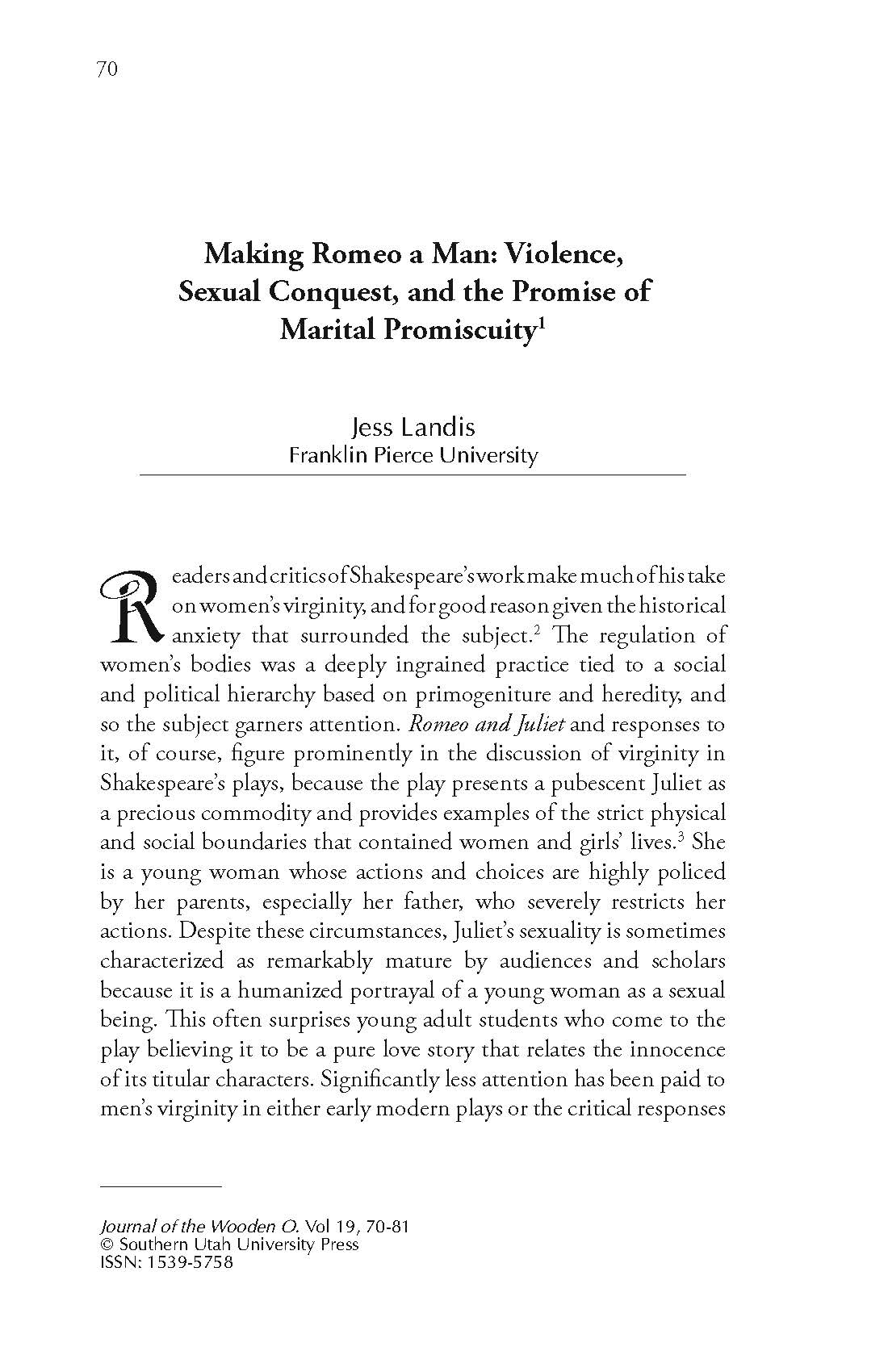Making Romeo a Man: Violence, Sexual Conquest, and the Promise of Marital Promiscuity
Main Article Content
Abstract
Readers and critics of Shakespeare’s work make much of his take on women’s virginity, and for good reason given the historical anxiety that surrounded the subject.2 The regulation of women’s bodies was a deeply ingrained practice tied to a social and political hierarchy based on primogeniture and heredity, and so the subject garners attention. Romeo and Juliet and responses to it, of course, figure prominently in the discussion of virginity in Shakespeare’s plays, because the play presents a pubescent Juliet as a precious commodity and provides examples of the strict physical and social boundaries that contained women and girls’ lives.3 She is a young woman whose actions and choices are highly policed by her parents, especially her father, who severely restricts her actions. Despite these circumstances, Juliet’s sexuality is sometimes characterized as remarkably mature by audiences and scholars because it is a humanized portrayal of a young woman as a sexual being. This often surprises young adult students who come to the play believing it to be a pure love story that relates the innocence of its titular characters. Significantly less attention has been paid to men’s virginity in either early modern plays or the critical responses they have garnered. However, Romeo and Juliet does have things to say on this understudied subject. As the play progresses, Romeo’s status as a man hinges on his and Juliet’s virginity in more ways than one.
